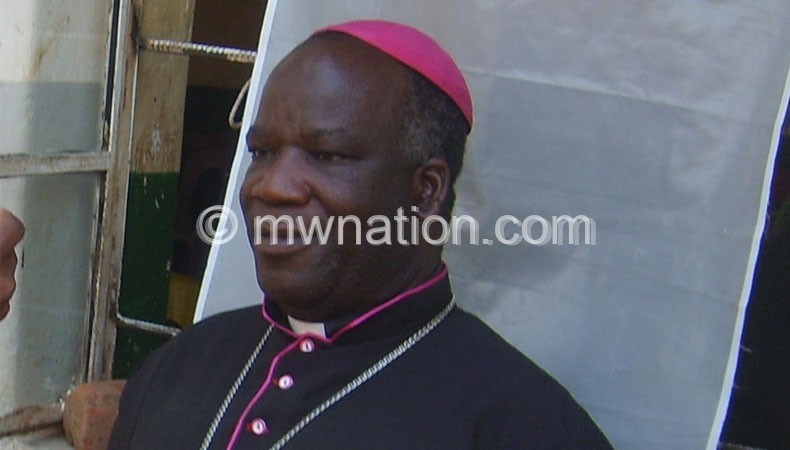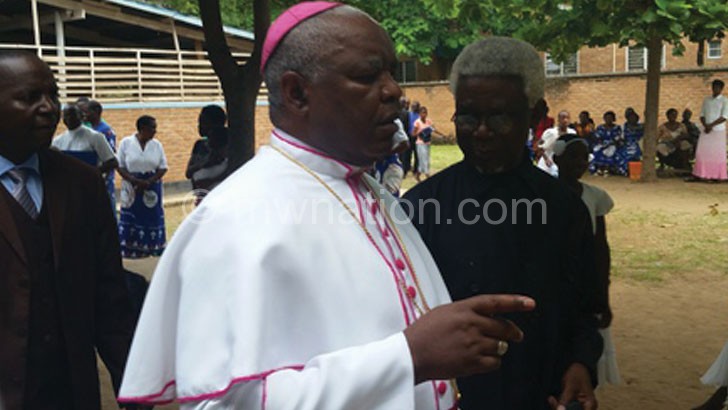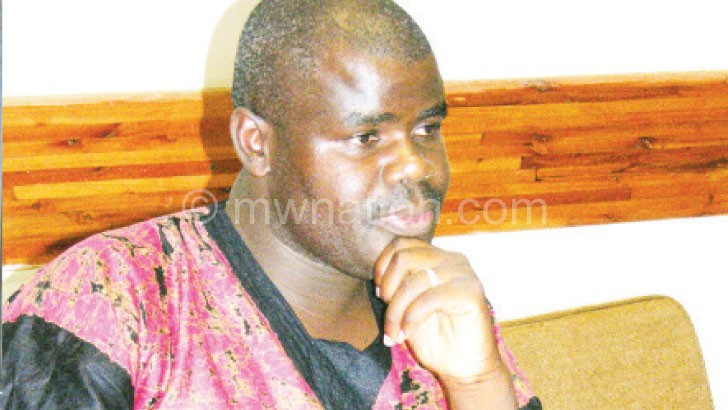Catholic Bishops attribute poverty to wrong economic choices by leaders
Bishops of the Catholic Church in the country yesterday issued a pastoral letter in which they have talked tough against the prevailing socio-political and economic issues facing the country.
In a pastoral statement the Episcopal Conference of Malawi (ECM) released yesterday under the theme Mercy of God as a Path of Hope, read out in Catholic Churches nationwide, the bishops also said the poverty the country is facing is a direct consequence of wrong economic choices made by those in power.

The bishops also said existing inequalities between the rich and the poor in both urban and rural settings is not the only social injustice which calls for their moral concern. They said there are other concerns such as elements of tribalism/regionalism, lack of fiscal discipline and dwindling standards of education that need to be addressed by the nation.
Others include persistent hunger, rising cost of living, overall shrinking of public service delivery, theft of government money and misplaced priorities.
Further, the bishops said they are worried by continuous presentation of unrealistic macroeconomic growth indicators that do not reflect the reality on the ground.
“We are also deeply worried by the bad performance of our economy. Thirdly, we are deeply concerned with the shortage of maize in the country, the exorbitant prices of the same at the parallel markets of vendors due to increased demand.

“Finally, we are deeply concerned about new trends in our society that promote a culture of death instead of a culture of life through the abortion campaign. Because of that, the family and the institution of marriage between man and woman are under direct attack from those campaigning for homosexual rights and homosexual unions,” reads part of the statement signed by seven bishops and monsignor of Mzuzu Diocese.
Malawi is currently facing high inflation rate at 24.5 percent, high lending rates hovering around 40 percent in commercial banks, an unstable local currency that, however, last week showed signs of stability and recovery and a food shortage that has put 2.8 million people in need of humanitarian assistance.
The bishops have said the present circumstances require government to review some of its policies and practices to achieve a change of mindset and attitudes to ensure national and household food security, social security, protection of the environment through promotion of alternative sources of energy and many other areas.
On that note, they have also called upon all Malawians of goodwill to by work together to implement the national agenda.
In their letter, the bishops have also highlighted positive developments that have happened in the past, including government and non-governmental organisations’ “swift” emergency response to flood victims; government’s stand on homosexuality and abortion; the public sector reforms programme which the bishops have described as a positive move towards the right direction and efforts to make the country food secure.
Commenting on the pastoral statement in a telephone interview, Chancellor College political analyst Boniface Dulani said although the issues tackled in the statement have been a subject of discussion of various groupings and individuals in the recent past, the statement has the potential to make a difference to the prevailing socio-political and economic challenges.

He said this is the case because of the Catholic Church’s influence in society as it has the largest following among all the different religious groups. He also said the Catholic bishops have demonstrated in the past that they can have an influential role in the political sphere, going back to the Lenten pastoral letter of 1991.
“The call for transformative and visionary leadership in a manner which according to me sounded like they are questioning the credentials of the current administration or at least calling upon the leadership to demonstrate that they can be transformative. This is similar to 1992,” said Dulani.
When contacted to give government’s take on the pastoral statement, Minister of Information, Tourism and Civic Education Jappie Mhango said he was yet to read the document.
“I have not read it so I cannot give you an interview,” said Mhango, who is the official government spokesperson.
However, in his New Year’s Address, President Peter Mutharika said he is hopeful that the kwacha will stabilise, more jobs and businesses will be created, more taxes will be paid and that Malawi will move towards becoming a producing and exporting nation in 2016.
Signatories of the letter are ECM chairperson and Archbishop of Blantyre Archdiocese Thomas Msusa, ECM vice-chairperson Bishop Martin Mtumbuka (Karonga Diocese), Archbishop Tarsizio Ziyaye (Archbishop of Lilongwe), Bishop Peter Musikuwa (Chikwawa Diocese), Bishop Emmanuel Kanyama (Dedza Diocese), Bishop Montfort Stima (Mangochi Diocese), Bishop George Tambala (Zomba Diocese) and Monsignor Michael Muwowo (Mzuzu Diocese).
ECM Mercy of God as a Path of Hope.pdf by John Richard Kasalika





